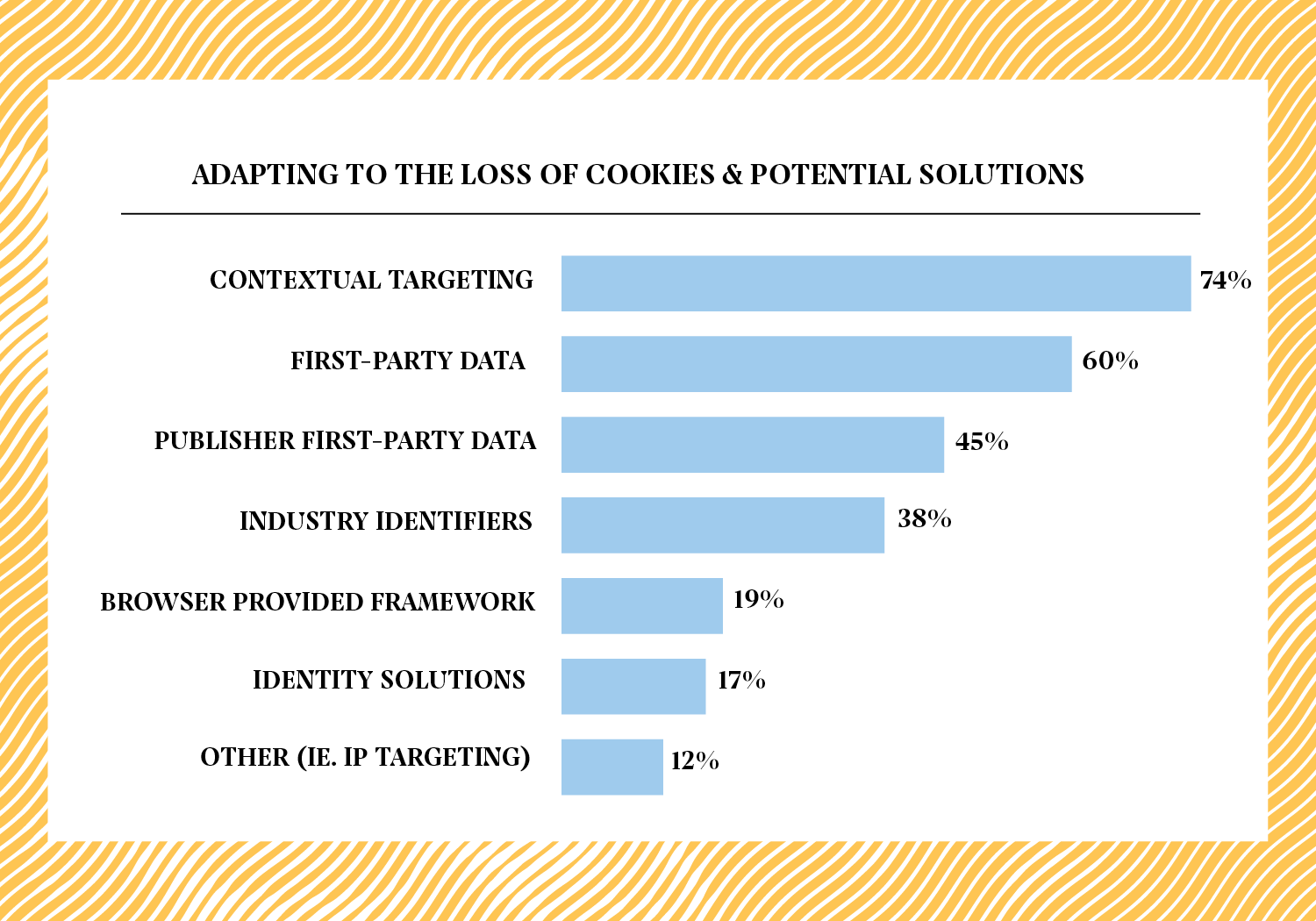Are you curious about all the “cookie” talk in the news these days – or is it just making you hungry? We wanted to know more so we chatted with our Media Director, Rich Melin, to learn what all the fuss is about and what impacts the proposed changes will have on advertisers.
Let’s start with the basics. What are cookies?
“Cookies are small files stored on a user’s device, designed to hold a modest amount of data specific to you. The intent is to allow a server to deliver web pages tailored to the user. They are how a website knows you have been there before and how social media platforms such as Facebook can deliver ads that are so relevant and timely it’s almost creepy. I mean, how did Facebook know I was planning a trip to Mexico?
While some people may see the benefit of this highly curated advertising, many others see it as a privacy concern. Consumers want a better understanding of what data is being collected about them, know how that data is being used, and control how companies are using their information online.”
What is about to change?
“Companies are feeling mounting pressure to eliminate cookies and give users back some of that privacy. Several web browsers have already done away with them – such as Firefox and Safari – and more widely used providers like Google Chrome recently announced it will be dropping third-party cookies in 2023. This has marketers shaking in their boots and scrambling to find alternative ways to deliver their ads efficiently, without a lot of waste.”
How will this impact advertisers?
“First, companies will have to ask your permission to share your information. If you say no – which is the trend right now – advertisers will have to change how they target and reach you online. You have probably seen evidence of this already with the release of iOS 14.5 which requires you to give permission for cookies to the apps you use. This not only impacts how data is collected, but also, campaign effectiveness overall.”
What kind of targeting tactics will be impacted by this?
- Retargeting: Companies will not be able to use cookies to identify a user who has visited their website but didn’t convert. (Meaning, the user did not fill out a form or provide any personal information.) Without cookies, you will no longer see ads all over the internet about those jeans you left in your cart.
- Frequency capping: Currently, cookies allow advertisers to limit the number of times a user sees an advertisement to avoid the message wearing out. In the future, there will be no way to cap the frequency of ad delivery. Prepare to see the same ads served up over, and over, and over.
- Conversion attribution: For most marketers, proving the ROI of their campaigns is critical. Without cookies, it will become a lot more difficult to attribute what ads may have impacted a buyer’s behavior.
- Behavioral targeting: Advertisers will lose the ability to mine a user’s browsing history to gather information about your interests, political affiliations, family situation, and more.”

What’s the solution – at least right now?
“Well, for now, there really is not one single, perfect solution. We – meaning, media buying professionals – anticipate there will be a multitude of new products to address these changes. Google is delaying their ban of third-party cookies until 2023, which gives marketers and advertisers more time to develop their strategy. We believe there will be a shift towards the use of first party data (utilizing the website’s content and the visitors it may attract), IP address targeting and industry identifiers such as email addresses for B2B campaigns to replace cookies for contextual placements. It’s an interesting time to be a media buyer that’s for sure.”
Need help crafting your “cookie-less” strategy? Contact us today and we will develop a media approach that will reach your audiences with maximum efficiency and effectiveness.